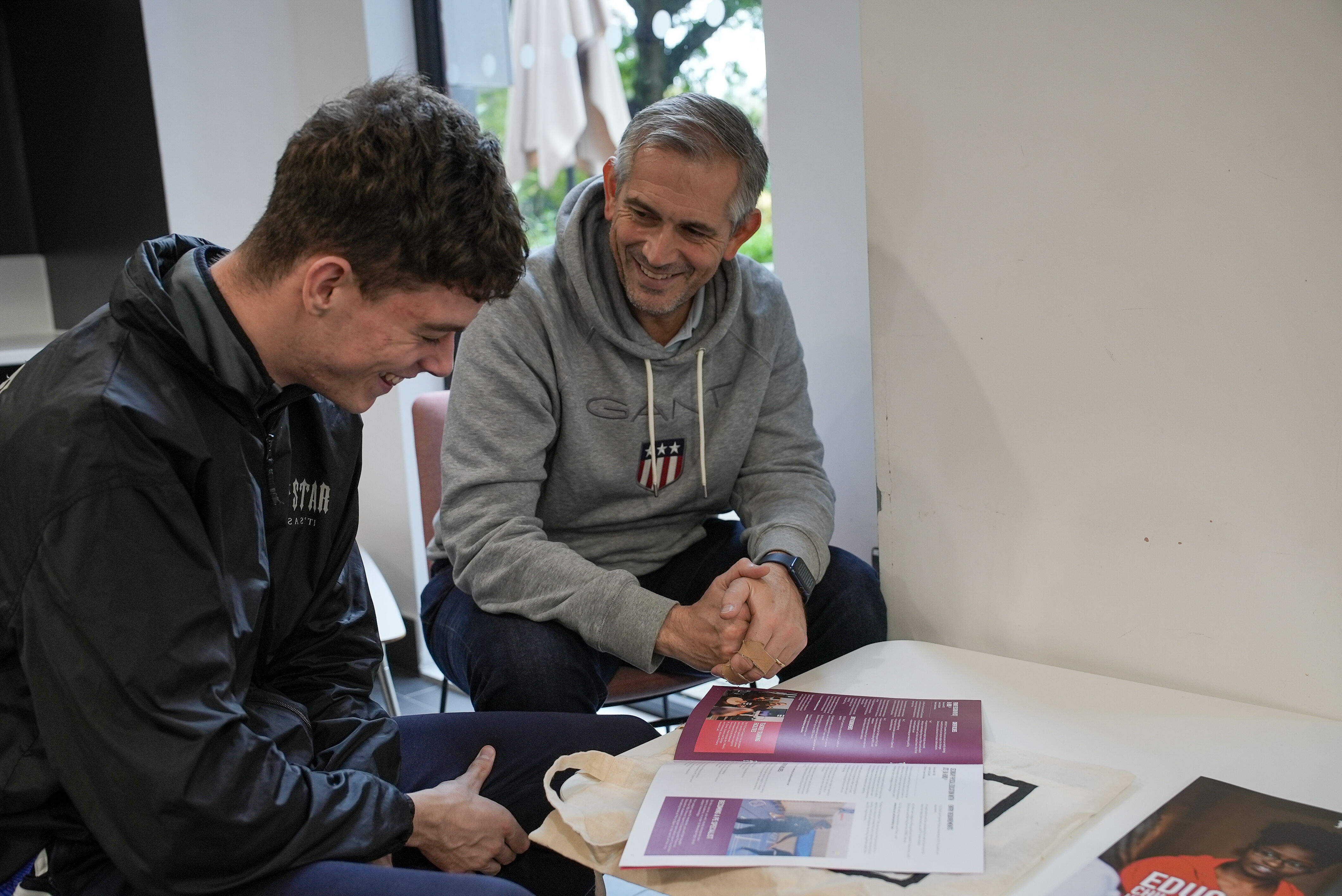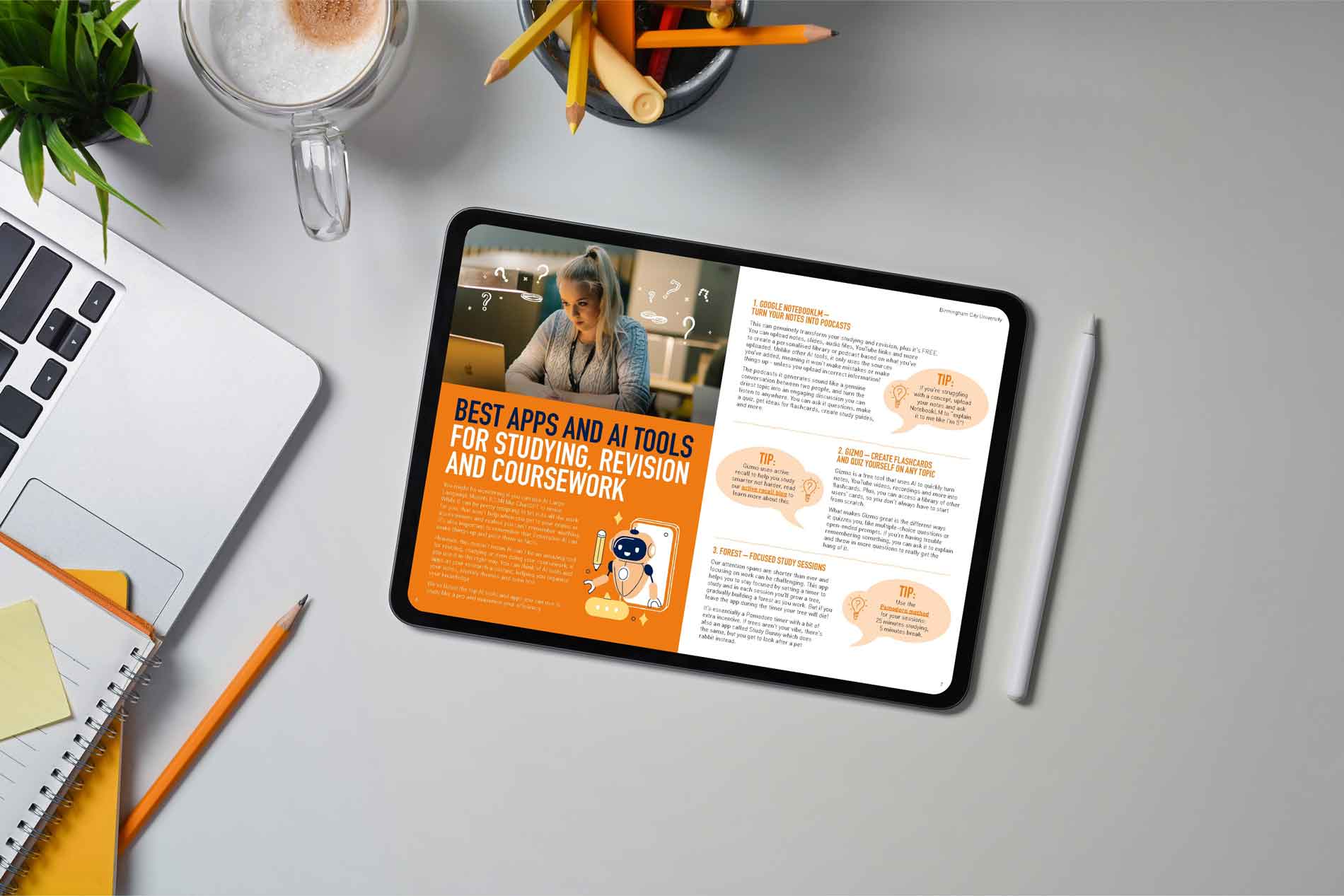Exam season can be a challenging time, and as a parent or carer, you might be wondering how best to help your young person. Maybe it's been a while since you sat an exam yourself or you took a different qualification, and it’s not always easy to know whether your support is making a difference.
Here are some practical ways to help your child stay focused, healthy, and confident as they prepare for their exams.
1. Show an interest in their revision
Take an interest in revision and the exam period, even if it’s on a subject or topic you know nothing about. Asking questions not only reassures your child that you care, but it can also help them recall key information and reinforce their learning. Try asking questions like "can you teach me something new?" or "what have you been working on today?".
2. Keep track of exam dates
Most schools or colleges will provide students with an exam timetable. Consider making a copy of this or writing down their exam dates on your home or phone calendar. Knowing when their exams are will help you understand their moods. They may be feeling more stressed in the days leading up to the exam or worried the night before. After an exam, they could feel relieved or upset, depending on how it went. Knowing their schedule will help you offer the right support at the right time.
3. Be flexible with chores and house rules
Exam season can be intense, so consider easing up on household expectations. If their room is messy or they don’t have time to do their usual chores, try to be understanding. Allowing them to focus on revision without added stress can help them perform better.
4. Help them move on from difficult exams
It’s natural for students to dwell on an exam that didn’t go as planned. Instead of saying, “I’m sure you did fine,” which could feel dismissive, try asking:
- “What’s your next exam?”
- “Which topics do you want to focus on now?”
This shifts their focus to what they can control rather than what’s already happened. Also, a short break after a difficult exam is fine; resting helps them recharge before moving on to the next one.
5. Encourage good nutrition for focus and energy
What your child eats can affect their concentration, memory, and energy levels. If you're able to, try having foods prepared that will help them focus more:
- Steady energy: Slow-release carbohydrates like whole grains and starchy vegetables.
- Focus and memory support: Protein and healthy fats from sources like dairy, nuts, seeds, or beans.
- Hydration: Water, milk-based drinks, or herbal teas instead of excessive caffeine or energy drinks.
Having nutritious snacks available makes healthy choices easier without feeling restrictive.
6. Keep a balanced perspective on exams
While exams are important, too much pressure can be overwhelming for a child and cause them to lose motivation. Your young person is aware of what's at stake, so try to avoid reinforcing their worries. Instead, remind them that their effort and hard work matter more than perfection. "I'm proud of how hard you're working" can be more reassuring than focusing on grades. There are many pathways available that can lead to a successful future, like degree apprenticeships, Clearing or more vocational degrees.
7. Join in with revision (if they want you to!)
If they're open to it, helping with revision can be a great way to support your child. You could get involved by:
- Quizzing them with flashcards.
- Acting as their student while they teach a topic.
- Helping them mark their past papers and identifying areas for improvement.
This makes their revision more interactive and helps them feel supported, you might learn something interesting too!
8. Reward effort rather than results
Rewards can be motivating, but be mindful of how they’re framed. Rather than saying, “If you get an A, I’ll buy you X,” consider rewarding effort instead:
- A meal out or a fun activity after exams, regardless of results.
- Small treats after revision sessions, like their favourite snack or a break doing something they enjoy.
This helps encourage hard work without adding extra pressure.
9. Create a good revision environment
A quiet, comfortable space for studying can make a big difference. If your home is noisy or busy,
- Can they use a quieter room at certain times?
- Could headphones or white noise help them focus?
- Is there a local library or study space they could use?
- Can you set 'quiet hours' for the rest of the family while they study?
Being mindful of noise levels, avoiding loud chores like vacuuming during study times can also help create a better revision environment. If your young person has ADHD, check out these revision tips.
Final thoughts
Supporting your child through exams isn’t just about their grades; it’s about helping them feel confident, balanced, and prepared. By encouraging effective study habits, reducing stress where possible, and offering reassurance, you can help them perform their best.
Would you like more practical tips and expert advice? Download our FREE revision guide, packed with study techniques, timetable planners, and more!







